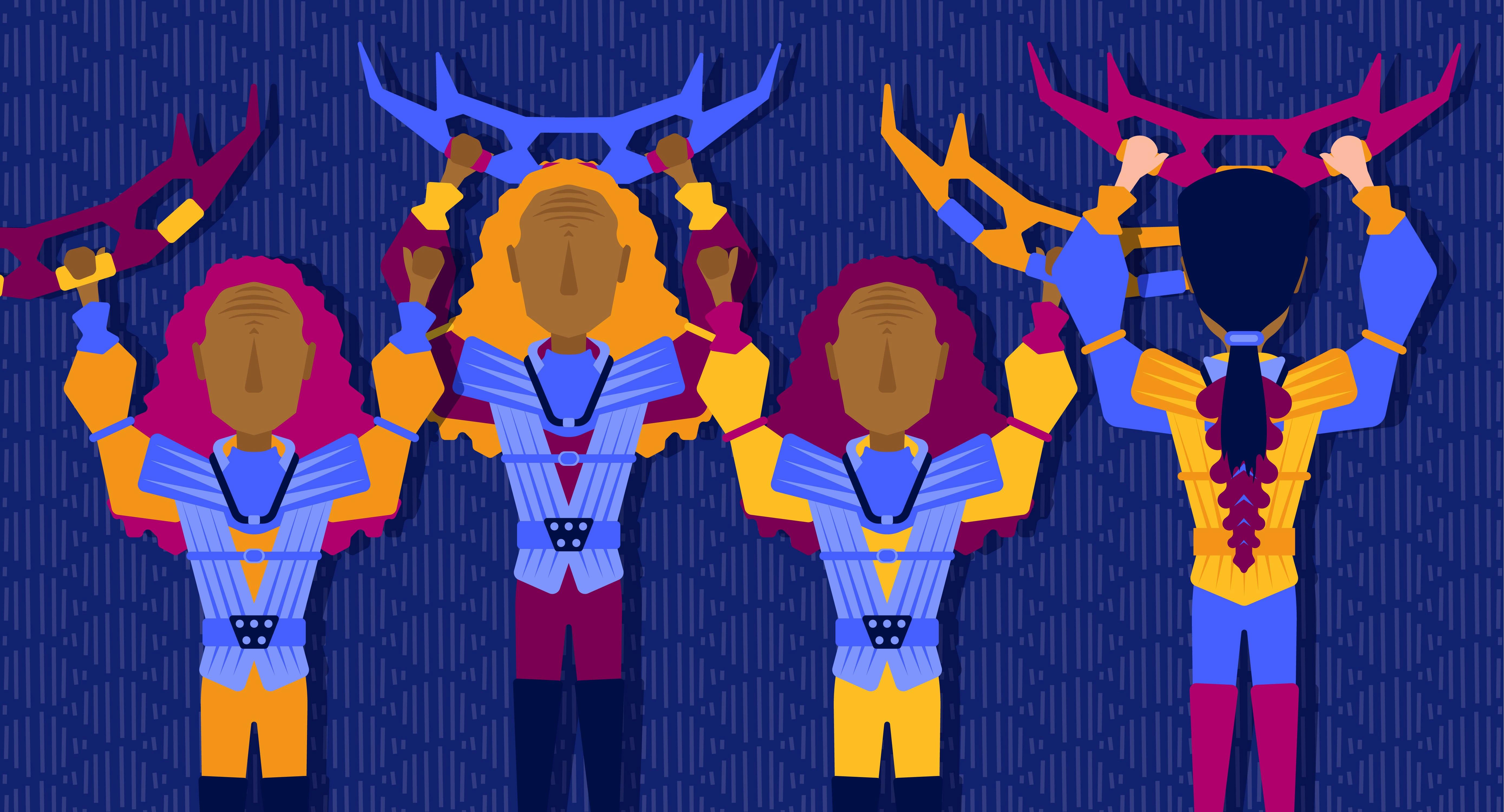Published Apr 15, 2024
Michael Ansara Broke Barriers in Hollywood and Star Trek
For Arab-American History Month and Ansara's birthday, we're looking back at the life of the Commander Kang actor and those who followed in the Star Trek universe.
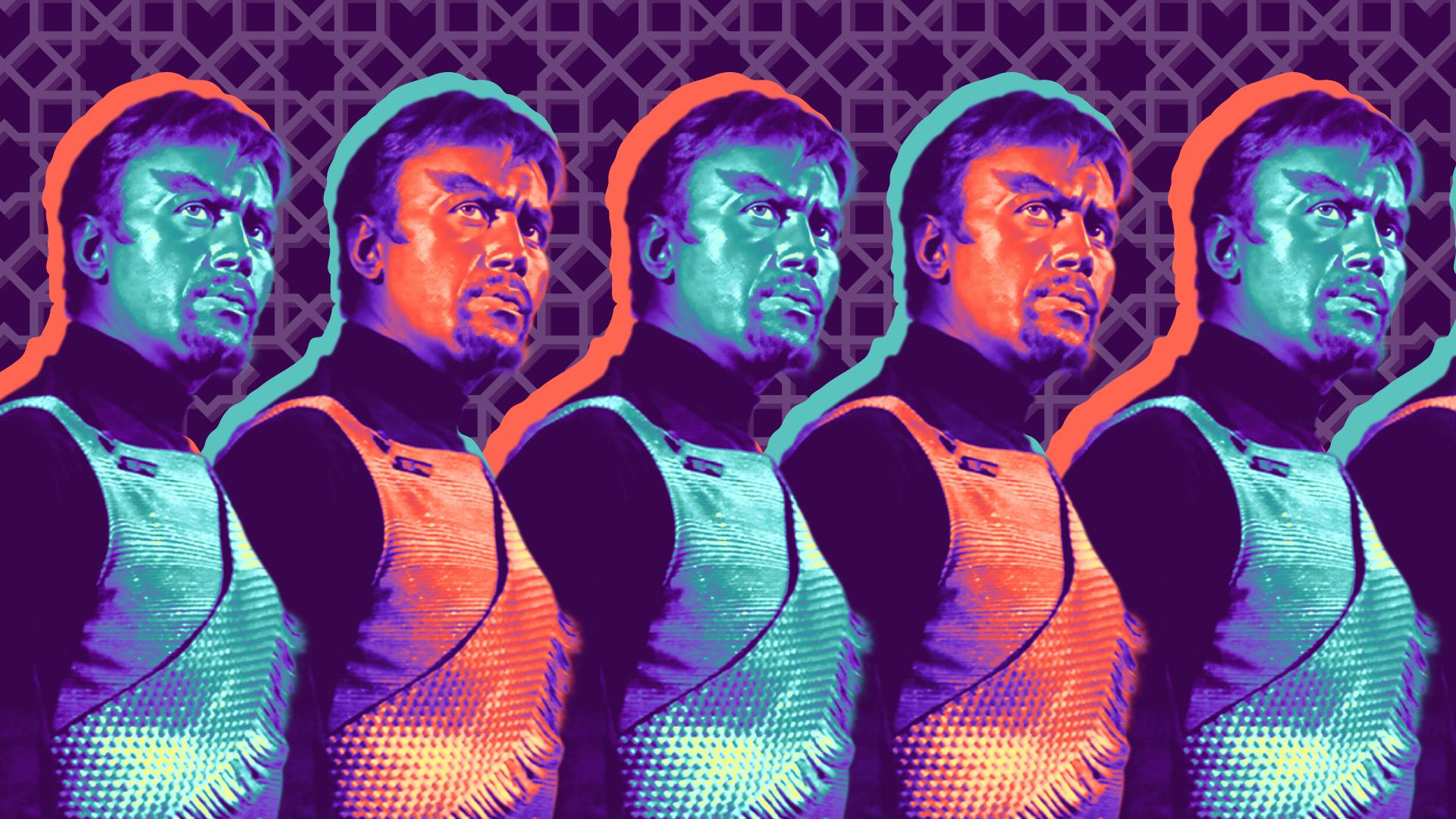
StarTrek.com
A series as representative of the present as it is of the future, Star Trek has been a trailblazer in showcasing the diversity in our own world without capitalizing on its stereotypes.
Actors such as Nichelle Nichols and George Takei, to Sonequa Martin-Green and Shazad Latif, have proven that Star Trek started and will always include multiracial communities while giving them their own distinct narratives. As we celebrate Arab-American Heritage Month, I am able to reflect on my own background as a Lebanese-American woman and recognize representation from this exact community within Star Trek. With a history of promoting diversity, it is no surprise that a significant Klingon Commander — in three separate series no less — is a notable member of the Arab-American community.
Michael Ansara, a voice and screen actor from the mid '40s to the late '90s, played the Klingon Commander Kang in , , and . He can be seen in full Klingon garb in The Original Series' "," DS9's "," and finally Voyager’s "."
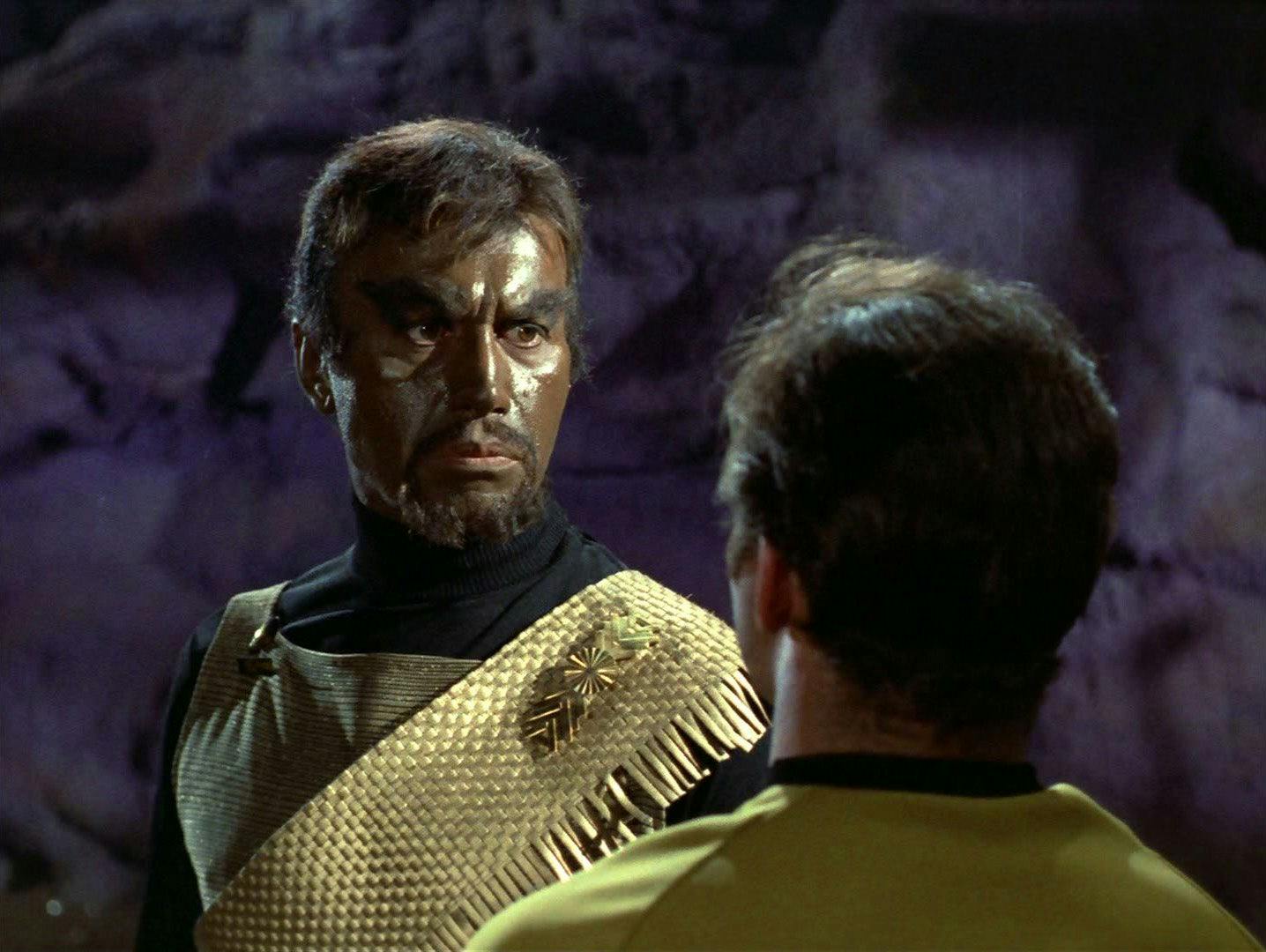
"Day of the Dove"
StarTrek.com
The Lebanese and Syrian Ansara is originally from a small village within the French Mandate for Syria and Lebanon, and eventually immigrated with his family to America to pursue a new life. His father George Ansara was born in the states while his mother Cyria Sarah was born in Syria.
In America, Michael began to pursue an acting career that would lead to many pivotal roles in film and television. He's largely known for playing some of our favorite villains, stepping out of Klingon prosthetics to play roles like Killer Kane in Buck Rogers in the 25th Century and Mr. Freeze in Batman: The Animated Series. Eventually, he earned himself a star on the Hollywood Walk of Fame, paving a new road for this community of actors and their ability to book roles beyond aggressive and politically-charged stereotypes.
Although Ansara's success and popularity within both the Hollywood and Star Trek communities brought notoriety to Arabs (though not all American) in a creative space, there are several other instances throughout the Star Trek franchises that also lend a hand.
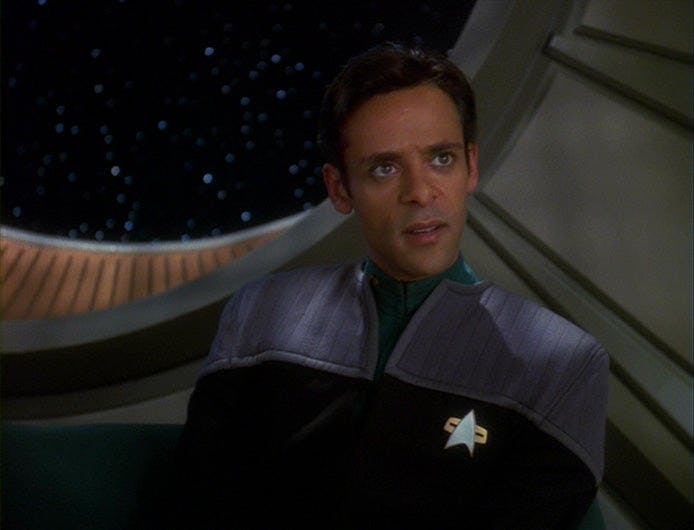
"Dr. Bashir, I Presume"
StarTrek.com
In Deep Space Nine, actor Alexander Siddig plays Dr. Julian Bashir, the Chief Medical Officer of space station Deep Space 9 and the U.S.S. Defiant.
Alexander Siddig, whose original stage name was Siddig El Fadil — a shortened version of his birth given name — was born in Sudan. Siddig spent most of his life in England and made his first television debut in A Dangerous Man: Lawrence After Arabia. It was from there that he was cast onto Deep Space Nine, and through that role, joined Ansara on the list of Arab actors from Trek who broke out of racial type-casting.
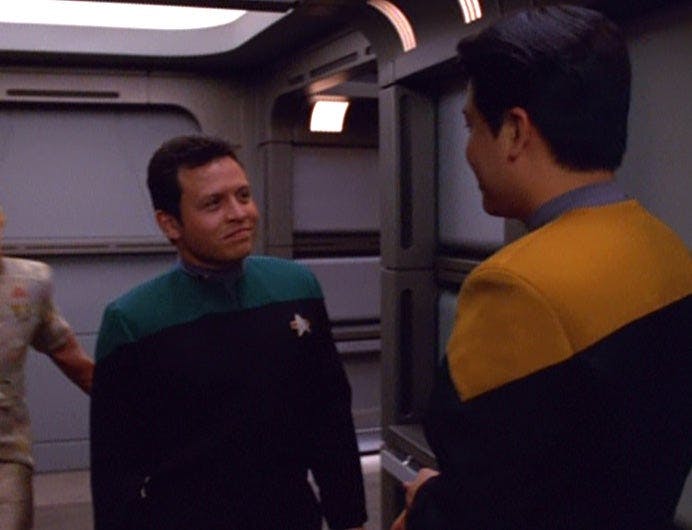
"Investigations"
StarTrek.com
In a less focal but equally interesting role played by an Arab, Star Trek: Voyager cast the actual King of Jordan, King Abdullah II, as a science officer in the episode "."
While the role was uncredited, it can be seen listed in King Abdullah II’s IMDB page. While a seemingly random casting, it is common knowledge that King Abdullah II is a well known fan of the franchise. So much so that since 2011, he has been the primary investor in a Star Trek theme park that is to be built along the Gulf of Aqaba in Jordan. While the project is currently on hold, they have not announced official plans for a cancellation.
Star Trek Shows Muslim Fans an Inclusive Future
Star Trek has also, on multiple occasions, given an in-universe nod to the Arab culture and community through both filming locale and starship epithet.
In 2016's , the massive, spherical "snowglobe" of Yorktown, as Bones called it, was filmed in Dubai in the United Arab Emirates. Filming in Dubai allowed this beautiful sequence to be canonically characterized with images from a modern Arab society, normalizing the culture and environment rather than encouraging a stereotypical portrayal of its land.
In another modern example of influence from Arabian culture, 's Cristóbal Rios, a former Starfleet officer, is mentioned to have served on a starship called the U.S.S. Ibn Majid. While easy to overlook, Ibn Majid is a reference to the name of a historically significant Arab navigator and cartographer. He was often titled the "Lion of the Sea," and some scholars claim that he is the navigator who aided in the journey of Vasco da Gama — the first European to sail to India.
Star Trek exists in a world where the Federation is a collaboration of all races, species and walks of life. It's significant to recognize that their namesake ships hail not after just Westernized fleets, but of important figures from around the world. U.S.S. Ibn Majid’s existence amongst the Federation's history brings light to the accomplishments of Arab culture.
While, of course, there is a long road to traverse to achieve complete representation without misrepresentation when regarding both Arab-Americans and Arabs portrayed in American society, Star Trek has undeniably laid their own stone in that path. As the franchises continue, so will the notion that in Star Trek, the future looks like us.

